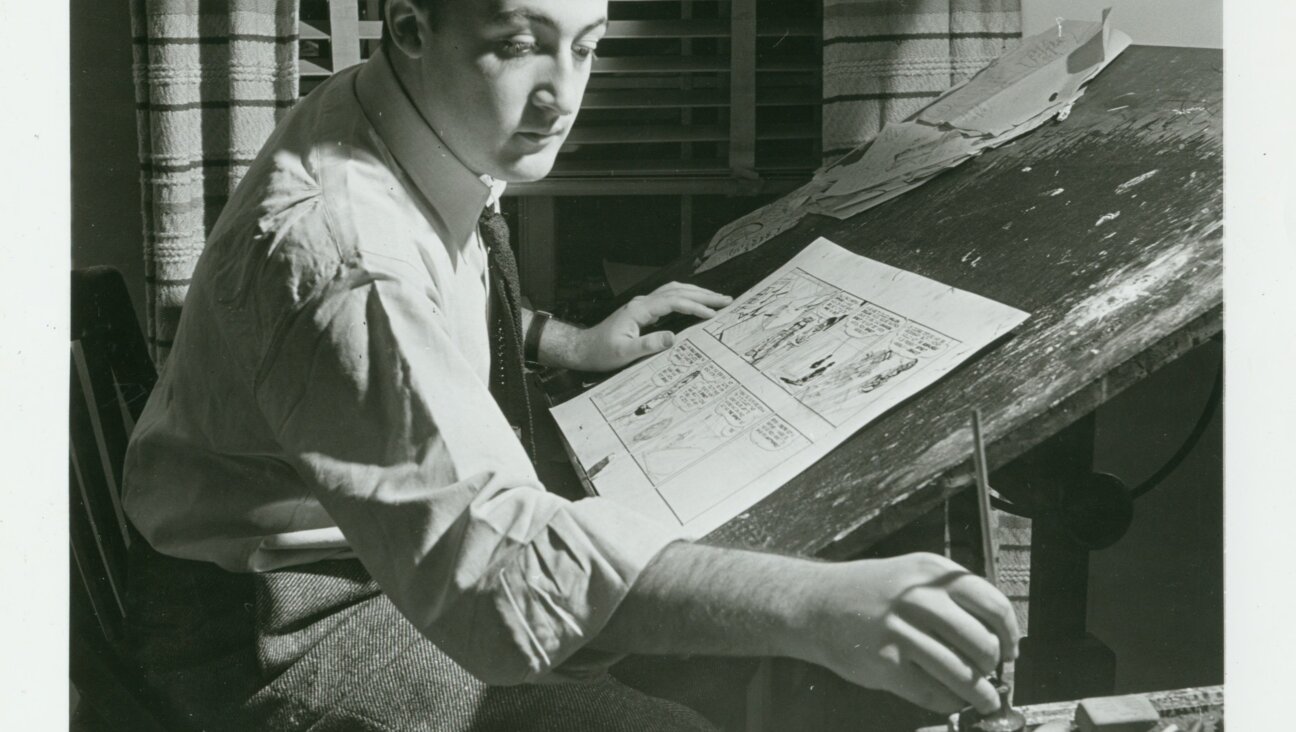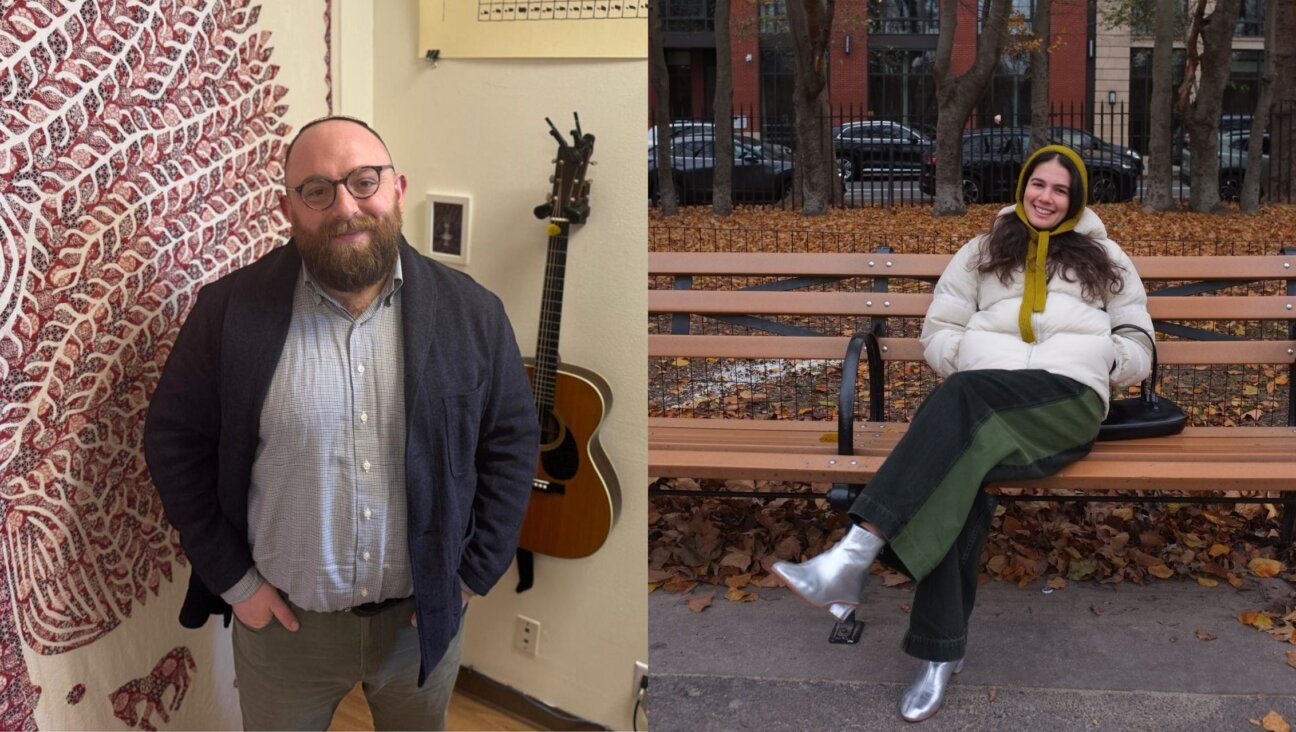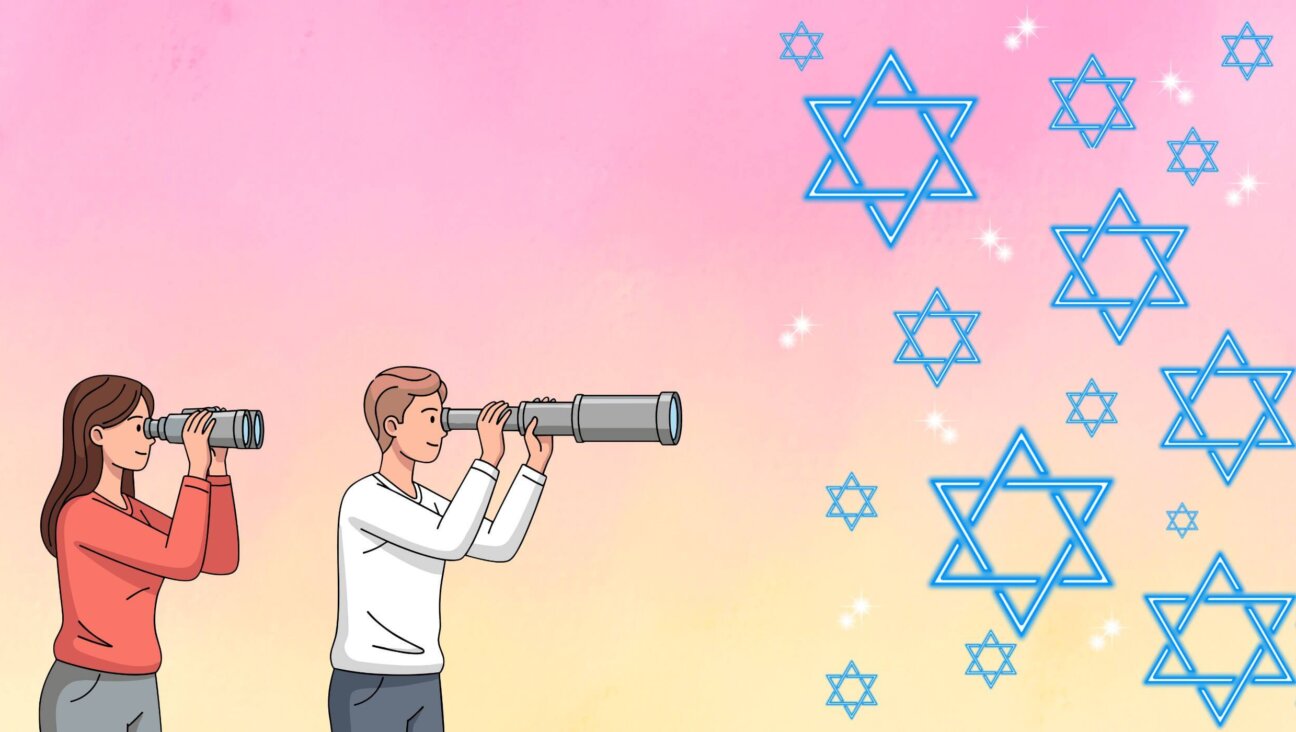Meet Ahamed Weinberg: The Jewish-Muslim-Catholic Comedian

Image by YouTube
Growing up, Ahamed Weinberg had a one-of-a-kind answering machine message. It would leave some callers perplexed.
“As-salamu alaykum, you’ve reached the Weinbergs!”
Weinberg, now 26, is channeling his hybrid identity into comedy.
The son of a Jewish father and a Catholic mother, both of whom converted to Islam in Philadelphia, he’s spent years explaining his name and religious background to friends. How does he have an Islamic first name — after the Muslim prophet Muhammad — and an Ashkenazi Jewish last name?
He found an outlet in comedy.
His first public performance came in the sixth grade, at a talent show for students. “You think your life is hard?” he asked the crowd. “I’m Muslim and Jewish. Try being at holy war with yourself.”
A popular stand-up comedian in Los Angeles, Weinberg is beginning to hit his professional stride. His humor, both earnest and irreverent, explores fraught racial and religious fault lines in America, informed by his own upbringing.
Weinberg has even garnered the support of one the country’s best-known Jewish comedians, Sarah Silverman.
Though raised as an observant Muslim, Weinberg said he draws inspiration from the many other Jewish comedians who came before him. He wants to take that comedic tradition and transform it.
“Jewish self-depreciation is an old thing,” Weinberg said. “But Muslim self-deprecation is a bit more rare.”
Shoutout to that happy spot between being extremely poor and extremely rich where you don’t need Buddhism
— Ahamed Weinberg (@ahamedweinberg) June 11, 2016
Weinberg is from a family of spiritual seekers. His father was born a Jew in Brooklyn; his mother was raised Catholic. Both his parents gravitated to Philadelphia to learn from an influential Sri Lankan Sufi teacher.
They eventually converted to Islam, and Weinberg would be praying at mosque in the early hours before school. He even went on a pilgrimage to Mecca at age 10.
The Philadelphian community was unique — made up largely of non-Muslim born seekers drawn to the mosque’s “message of love and universal wisdom.”
For Weinberg, though, balancing the inner and outer worlds was often a challenge.
“In high school I wanted to be white more than anything in the world, and the hardest part was that I was white,” he quipped recently on Twitter.
He makes light of it now, but the years left their mark. “I never fully found my identity as a Muslim… I wanted to be a ‘normal American,’” Weinberg said. “But when I was in school I never really felt like I could fit into Western society, because I was Muslim.”
When terrorists flew two planes into the World Trade Center in New York City in September 2001, Weinberg felt tugged in multiple directions.
“I remember a classmate turning to me and saying, ‘I bet the Muslims did it,’” Weinberg recalled. “When I was with my parents, I saw the Muslim perspective: ‘This is a terrible event that is being connected to Islam. Are there going to be violent attack against Muslims?’”
The warm response Weinberg got to his performance at a junior high comedy show was encouraging. “I felt this wave of acceptance that I never really felt before,” he said.
At 21, Weinberg went on a Birthright tour to Israel. He had a “shot-gun bar mitzvah” in Jerusalem, he said, and explored Judaism in a way that he never had before: “I was surrounded by Jews and felt a sense of belonging.”
He kept telling jokes, ultimately moving to California to try his hand as a stand-up comedian (to make ends meet, he also worked as a production assistant and delivered pizzas).
It is hard to get noticed in Los Angeles. But Weinberg is carving out a space for himself.
Some people wish life had a pause button I wish life had a menu button I’ve been sitting here for a while and I’d love to see a menu
— Ahamed Weinberg (@ahamedweinberg) June 15, 2016
And for the second year in a row he is writing a daily “Ramadan Diary,” chronicling his month of fasting.
The posts are usually written while fasting and have a lyric, crazed feel — an imagined interview with Donald Trump (during which Trump eats an American flag and calls the sun a “gay Muslim”); Weinberg’s same-sex love for his refrigerator (the fridge identifies as male); self-help books to avoid (“The Codependence Cookbook,” “Enlightenment Through Spite” and “Wherever You Go, There You Are, Bad at Things.”)
On the sixth night of Ramadan, a mass shooting in Orlando, Florida, was carried out by a man who pledged his allegiance to the Islamic State group before killing more than 50 people at a popular gay club.
Weinberg watched in shock. Then he turned to his diary.
“I’ve been inside many mosques during my lifetime and felt safe in all of them. I’ve never been to a gay nightclub, but I’ve heard it’s another place where you can feel safe. Another place where you can find God,” he wrote. “Aren’t they both places of refuge?”
It was an idea that might be offensive, he admits — drawing a sacred parallel between a gay night club and a mosque.
Would other Muslims support him? “Some people might not even consider me a Muslim,” Weinberg admitted. But other Muslims have approached him to praise his work. “I was seeing comments saying, Alhamdullielah” — “Thank God” in Arabic. “That is amazing for me to see, people saying, praise God that you’re saying what you’re saying.”
Contact Sam Kestenbaum at [email protected] or on Twitter, @skestenbaum
















